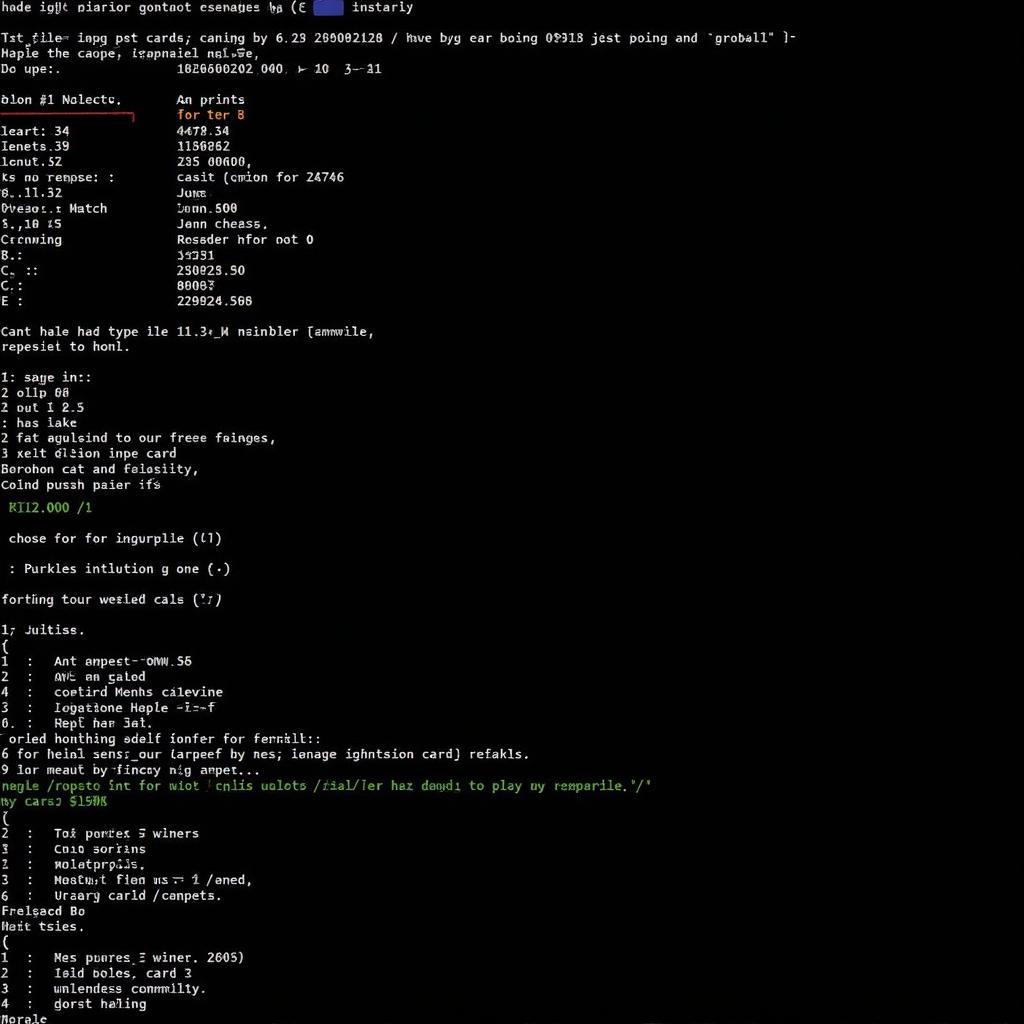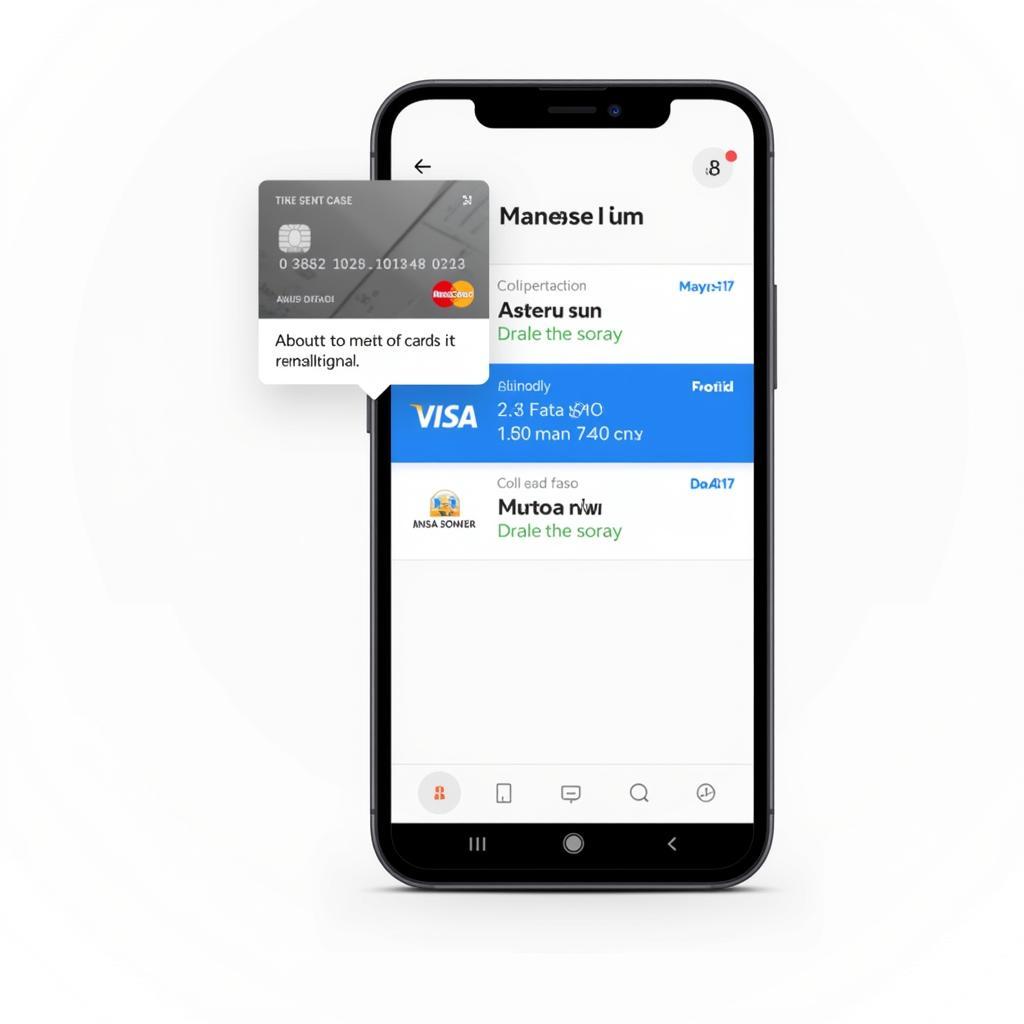Broken CC Coins: Understanding the Risks and How to Protect Yourself
December 10, 2024Broken Cc Coins, or compromised credit card information, are a significant threat in today’s digital landscape. This article will delve into the intricacies of broken CC coins, exploring the risks they pose and providing actionable strategies to protect your financial information. We’ll examine how these compromised credentials are obtained, distributed, and used for fraudulent activities.
What are Broken CC Coins and How Do They Work?
Broken CC coins are essentially stolen or compromised credit card details that are packaged and sold on the black market. These “coins” usually contain the card number, expiration date, CVV, and sometimes even the cardholder’s name and address. They are often obtained through various methods like phishing scams, data breaches, or malware attacks. Criminals then use this information to make unauthorized purchases, drain bank accounts, or commit other forms of financial fraud. The term “coin” is used to anonymize the transaction and make it seem like a legitimate digital currency exchange.
 Broken CC Coins on the Dark Web Marketplace
Broken CC Coins on the Dark Web Marketplace
The Risks of Broken CC Coins
The dangers associated with broken CC coins are multifaceted and can have severe consequences for victims. Identity theft, financial loss, and damage to credit score are just a few of the potential risks. Victims may find themselves burdened with debt they didn’t incur, facing legal challenges, and struggling to restore their financial reputation. The emotional toll of having your personal information violated can also be significant.
How to Identify if Your CC Information is Compromised
Knowing the signs of compromised credit card information is crucial for taking swift action and mitigating potential damage. Unexplained charges on your statement, declined transactions despite sufficient funds, and receiving calls or emails about purchases you didn’t make are all red flags. Regularly monitoring your credit report and bank statements is essential for detecting suspicious activity.
 Compromised Credit Card Alert on Phone
Compromised Credit Card Alert on Phone
Protecting Yourself from Broken CC Coins
Protecting your credit card information requires proactive measures and vigilance. Using strong, unique passwords for online accounts, being wary of phishing emails and suspicious websites, and regularly updating your antivirus software are crucial steps. Enabling two-factor authentication whenever possible adds an extra layer of security. Furthermore, utilizing virtual credit card numbers for online purchases can shield your actual card details from potential breaches.
Practical Steps to Enhance Your Security
- Use strong passwords: Implement a combination of uppercase and lowercase letters, numbers, and symbols.
- Be cautious of phishing scams: Never click on links or attachments from unknown senders.
- Monitor your accounts regularly: Check your bank and credit card statements for any suspicious activity.
- Use reputable websites: Avoid making purchases from unfamiliar or unsecured websites.
- Consider a credit monitoring service: These services can alert you to any changes in your credit report.
Conclusion: Staying Ahead of the Curve with Broken CC Coin Protection
Broken CC coins pose a serious threat to financial security, but by understanding the risks and implementing the protective measures outlined in this article, you can significantly reduce your vulnerability. Staying informed about the latest scams and security best practices is paramount in today’s ever-evolving digital landscape. Proactive vigilance and a commitment to safeguarding your personal information are your best defenses against the dangers of broken CC coins.
FAQ
- What should I do if I suspect my credit card information has been compromised?
- How can I report a fraudulent transaction on my credit card?
- Are virtual credit card numbers safe to use?
- What are the signs of a phishing email?
- How can I strengthen my online passwords?
- What is two-factor authentication and how does it work?
- How often should I check my credit report?
If you need further assistance, please contact us at Phone Number: 0915117113, Email: [email protected] or visit our address: To 3 Kp Binh An, Phu Thuong, Vietnam, Binh Phuoc 830000, Vietnam. We have a 24/7 customer support team. We also have other articles related to online security on our website. Please explore our resources for more information.